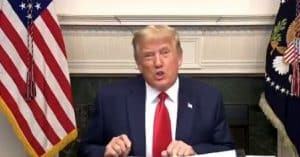Rfk Jr. Denied New York Ballot Spot Over Residency Issue
In a decisive court ruling, Robert F. Kennedy Jr. has been deemed ineligible for the New York presidential ballot due to residency discrepancies.
Justice Christina L. Ryba has ruled that Robert F. Kennedy Jr. is not a New York resident, impacting his presidential campaign significantly.
At the heart of the matter is the determination by a lower court in Albany, where Justice Christina L. Ryba identified a critical discrepancy in Kennedy's declaration of residency. Kennedy, an independent presidential candidate, listed 84 Croton Lake Road, Westchester County, New York as his home address. However, the court found this to be false.
Legal Findings Reveal False Residency Claim
The accusation stemmed from a Democratic-backed lawsuit that challenged Kennedy's stated New York residency. It was argued that Kennedy, in fact, resides in California, making his New York residency claim invalid for electoral purposes.
Justice Ryba's decision drew on various pieces of evidence showing that Kennedy's ties to the New York address were superficial. According to the ruling, Kennedy's connection to the address was maintained solely to uphold his voter registration and political identity within New York.
The implications of the ruling are profound, extending beyond just New York's ballot. Kennedy used the same New York address for all his election filings across the United States, which now brings his eligibility into question in other states as well.
Election Impact and National Ramifications
Justice Ryba’s ruling has cast a shadow over Kennedy's overall electoral prospects. His campaign has signaled intentions to appeal the decision, emphasizing the potential national impact of this local ruling.
A peculiar aspect of Kennedy's potential disqualification revolves around a quirk of the 12th Amendment. Should Kennedy be confirmed as a California resident, he might be barred from receiving California’s electoral votes because his running mate, Nicole Shannahan, is also from California.
The evidence presented in court included Kennedy’s driver’s license records, falconry licenses, and even a TikTok video, all of which supported the assertion that he primarily resides in California, not New York.
Controversial Campaign Tactics Under Scrutiny
Kennedy's presidential run has not been without controversy. His campaign has been marred by bizarre claims and unusual incidents, adding to the spectacle surrounding his candidacy.
Comments from both sides of the political spectrum reflect the contentious nature of the proceedings. A spokesperson for the Democrat-aligned group MoveOn criticized Kennedy, suggesting that his campaign was a deceptive effort supported by 'MAGA donors' to influence the election in favor of Donald Trump.
Conversely, Kennedy's team has accused the Democrats of undermining democracy. “The Democrats are showing contempt for democracy. They aren’t confident they can win at the ballot box, so they are trying to stop voters from having a choice. We will appeal and we will win,” said a spokesperson from Kennedy's campaign.
Legal Battles and Future Strategies
Kennedy’s team has accused the Democratic National Committee of engaging in 'lawfare' instead of competing fairly in the electoral process. This narrative feeds into the broader dialogues about the integrity and fairness of the U.S. electoral system.
As Kennedy’s team prepares to challenge the court’s decision, the legal battles will intensify. The outcome of these challenges could significantly influence voter perceptions and Kennedy's ability to compete in the upcoming presidential election.
In conclusion, the court's ruling against Robert F. Kennedy Jr.'s eligibility for the New York ballot due to residency issues has opened up a broader debate about his overall eligibility and the tactics used by his campaign. The case continues to unfold as both legal and public scrutiny intensifies, highlighting the complex interplay of law, politics, and personal conduct in the race for the presidency.




